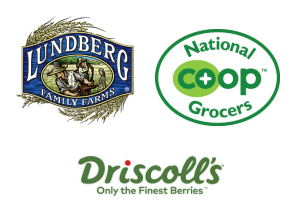OFRF Accepting Letters of Intent for 2020 Grant Funding
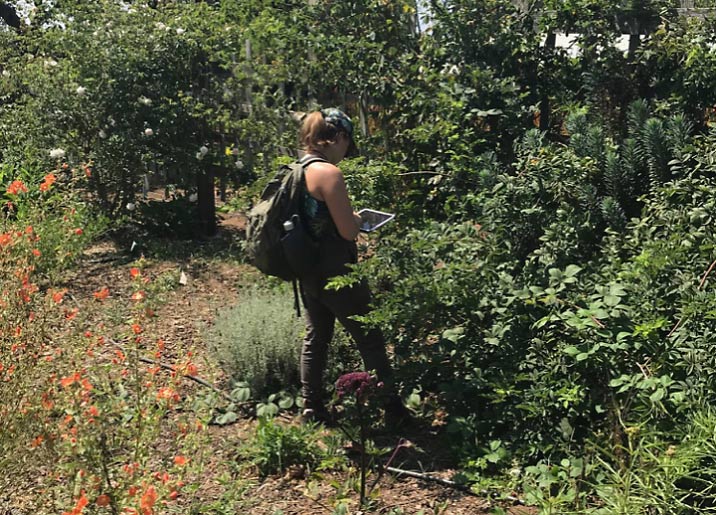
July 1, 2019—OFRF is pleased to announce the Fall 2019 Request for Letters of Intent is now open for 2020 grant funding. The program is open to all applicants residing and conducting research in Canada, Mexico, and the United States. The deadline to submit Letters of Intent (LOI) is Friday, August 16, 2019. Successful applicants will be notified in fall 2019 and invited to submit a full proposal.
OFRF is committed to supporting innovative research that meets the current challenges of organic farming, and fosters the adoption and improvement of organic farming systems. Since 2006, OFRF has invested over $3M in research projects based on scientific merit, combined with the potential to address key grower challenges. Techniques and findings from OFRF-funded research have been widely implemented by organic farmers and ranchers, with information disseminated online, in publications, and at farming conferences and field days.
“In today’s climate, organic farmers and ranchers must overcome more production risks than ever to remain competitive and sustain a livelihood,” said Lauren Snyder, OFRF’s Research Program Manager. “This year, we are excited to present an interdisciplinary set of special research topics in our request for LOI to reflect the diverse challenges organic producers face. Our goal is to encourage innovative research that identifies solutions to the environmental, economic, and social barriers to organic production systems.”
Based on the OFRF report, 2016 National Organic Research Agenda (NORA), this year’s priority areas for research projects include soil health and weed management, organic pest management, climate change, and social science research on the barriers to organic transition. Submissions must meet one or more of the priority areas outlined in the request for LOI. We encourage applicants to download the report for more details.
The instructions and form are now available at ofrf.org. Project LOI are reviewed and approved by the OFRF Board of Directors, most of whom are certified organic producers. Applicants invited to submit full proposals will be notified in the fall. Grant funding will be announced in spring 2020.
We look forward to another year of outstanding project submissions!
Letter of Intent and instructions
OFRF is pleased to accept Letters of Intent for research projects on organic farming and food systems. Please complete the application and submit no later than Friday, August 16, 2019.
If you have additional questions, you may contact the OFRF Research Grants Division
by phone at 831.426.6606 or e-mail at grants@ofrf.org.




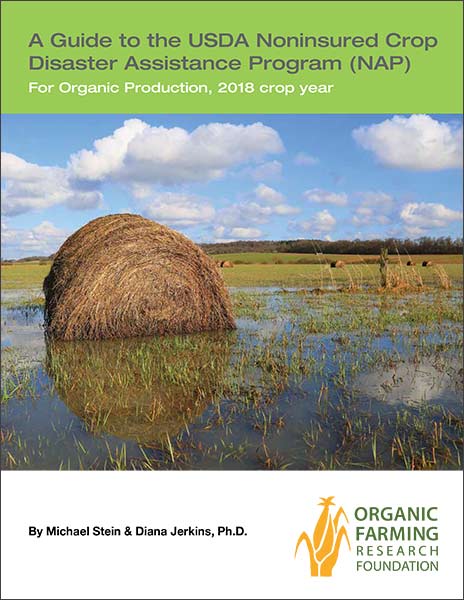
 June 19, 2019 – Rory Beyer was raised on the dairy farm his parents have owned since 1973. After graduating from the University of Wisconsin-River Falls with a degree in Animal Science, he returned to the farm and several years later, made the transition to organic production. Today, the Beyers farm 385 acres, raising dairy, beef, corn, and small grains. Since going organic, Rory says the cows are healthier and producing more and, in seven years, they’ve seen their soil organic matter (SOM) go from 1.7% to 4.4% as a result of soil building practices such as cover cropping, managed rotational grazing, diverse rotations, and the use of organic soil amendments.
June 19, 2019 – Rory Beyer was raised on the dairy farm his parents have owned since 1973. After graduating from the University of Wisconsin-River Falls with a degree in Animal Science, he returned to the farm and several years later, made the transition to organic production. Today, the Beyers farm 385 acres, raising dairy, beef, corn, and small grains. Since going organic, Rory says the cows are healthier and producing more and, in seven years, they’ve seen their soil organic matter (SOM) go from 1.7% to 4.4% as a result of soil building practices such as cover cropping, managed rotational grazing, diverse rotations, and the use of organic soil amendments.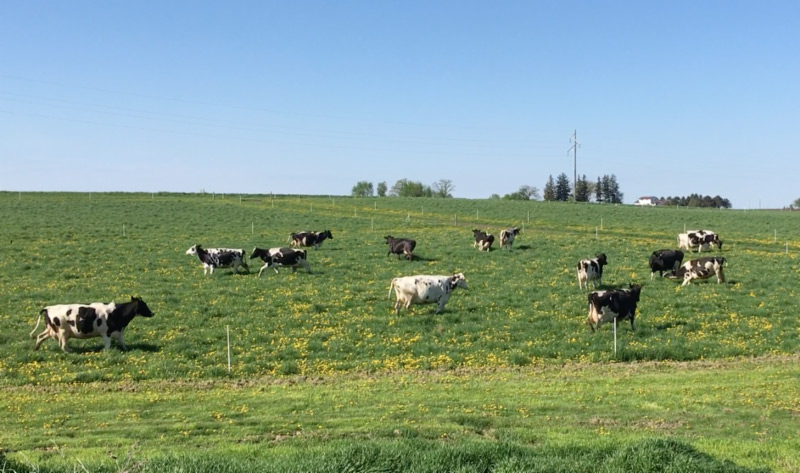




 May 30, 2019 – OFRF’s wildly popular webinar series on soil health and organic farming is now archived and available to view on-demand. Registration numbers for the live webinars were off the charts, causing eOrganic to have to upgrade their platform to handle the volume. Thousands of farmers, agriculture professionals, and researchers from 48 states and 14 countries attended the live webinars. The archived versions have been viewed over 7,000 times!
May 30, 2019 – OFRF’s wildly popular webinar series on soil health and organic farming is now archived and available to view on-demand. Registration numbers for the live webinars were off the charts, causing eOrganic to have to upgrade their platform to handle the volume. Thousands of farmers, agriculture professionals, and researchers from 48 states and 14 countries attended the live webinars. The archived versions have been viewed over 7,000 times! The webinars align with topics covered in OFRF’s Soil Health and Organic Farming Guidebooks to explore the most recent research on soil health practices, while offering practical guidelines for building healthy soil.
The webinars align with topics covered in OFRF’s Soil Health and Organic Farming Guidebooks to explore the most recent research on soil health practices, while offering practical guidelines for building healthy soil.
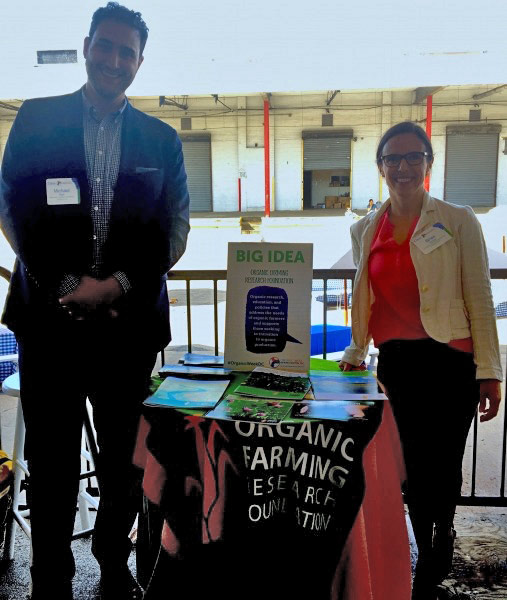
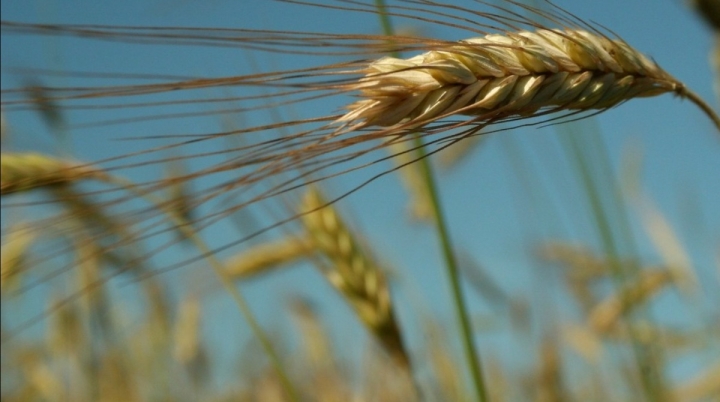 May 21, 2019 – OFRF has awarded a grant to Aysha Peterson at UC Santa Cruz to examine barriers to adoption of plant-based nutrient management strategies among organic, socially disadvantaged farmers in Salinas, California. Peterson hopes to bridge the gap between research and implementation by using qualitative data to answer questions about adoption and decision-making processes.
May 21, 2019 – OFRF has awarded a grant to Aysha Peterson at UC Santa Cruz to examine barriers to adoption of plant-based nutrient management strategies among organic, socially disadvantaged farmers in Salinas, California. Peterson hopes to bridge the gap between research and implementation by using qualitative data to answer questions about adoption and decision-making processes.